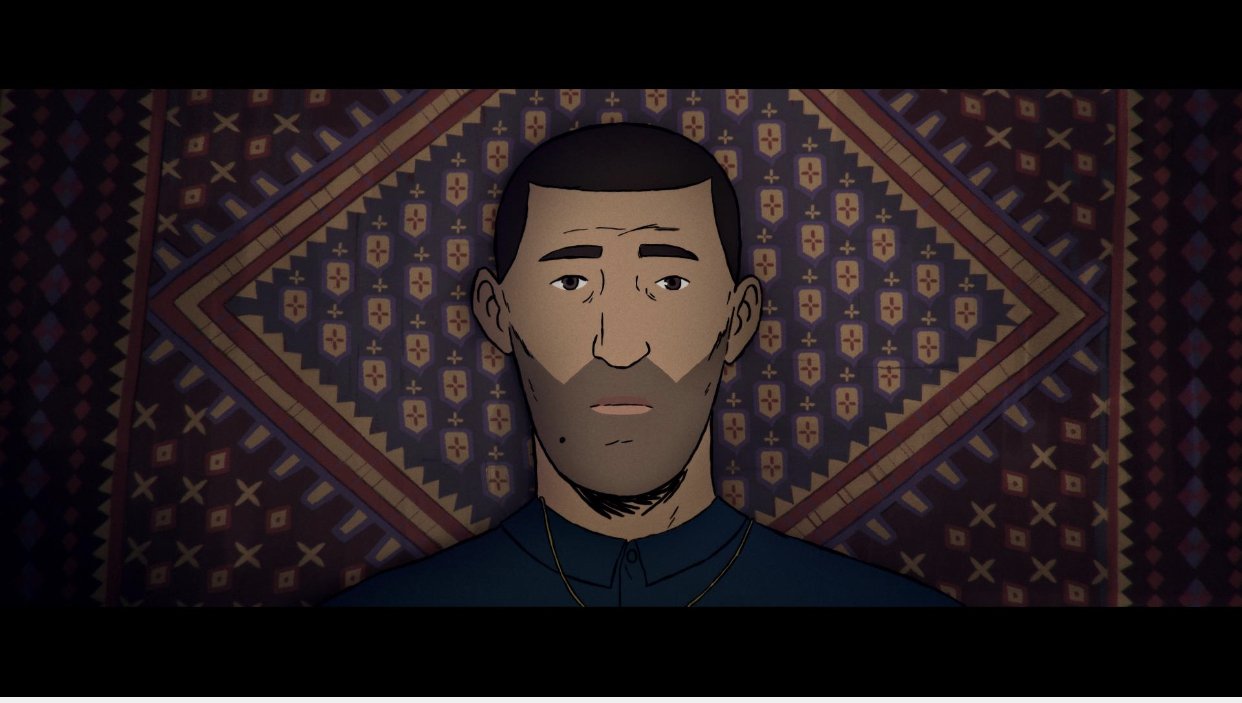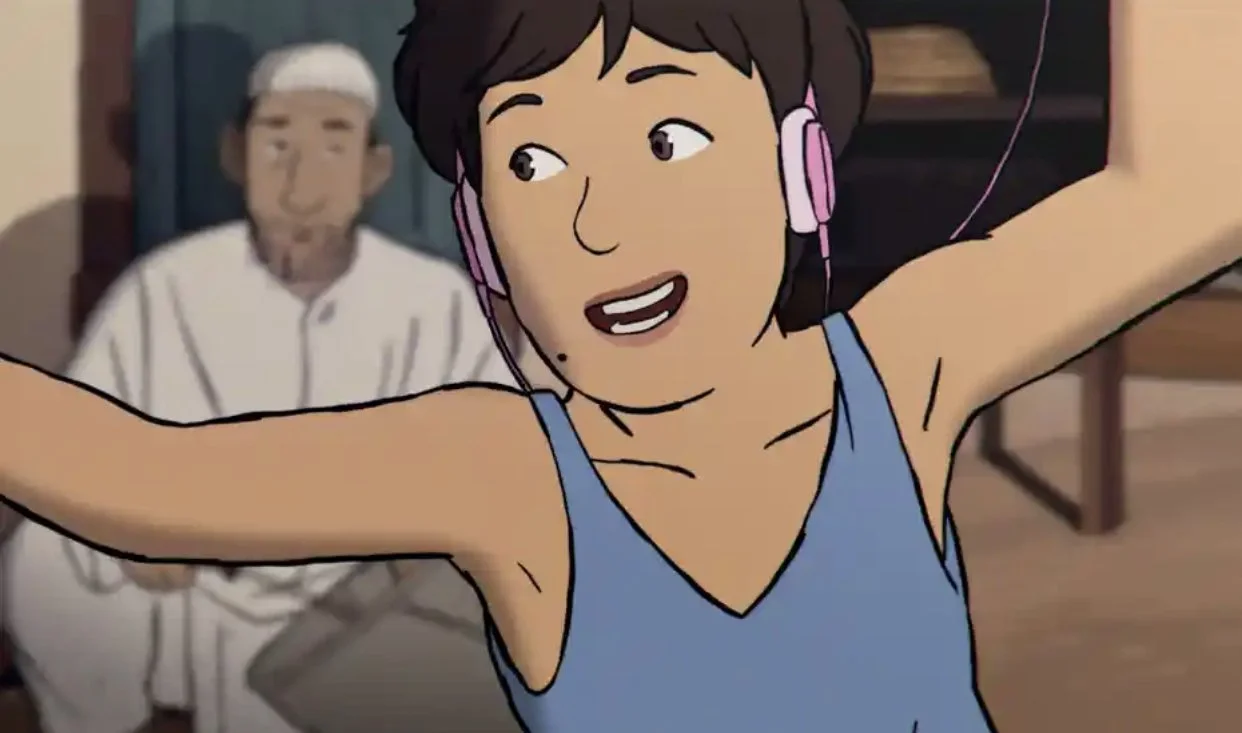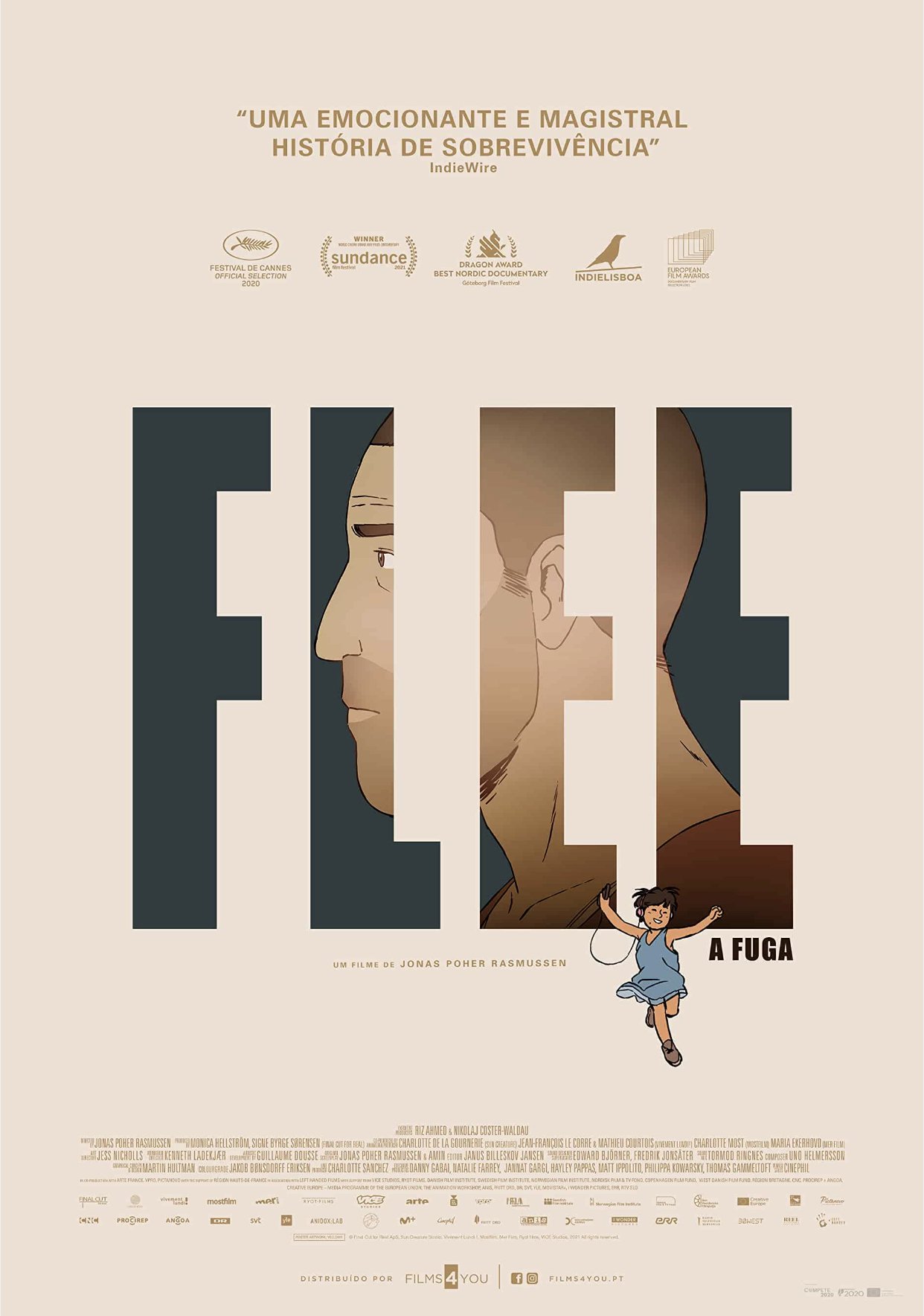Film Review- FLEE
by Arnold Wayne Jones
By its very nature, Flee is the kind of movie that risks being reductively shuttled into the category of novelty, if not outright gimmicky: It’s a documentary, but it’s also animated (portions are intercut with life-action footage), though it uses tons of live-action footage; it touches on about a half-dozen hot-button topics, from a same-sex relationship to a same-sex relationship including a Muslim to a story about a refugee (same guy!) and he’s a refugee from the Mujahideen in Afghanistan to Russia, two countries where unrest has dominated the news for a year. Why, if it were a fiction film, they’d’ve cast Daniel Day-Lewis and let him walk away with a fourth Oscar. (They might even make him a paraplegic with a speech impediment, just to seal the deal.) The fact it is the first film ever to receive three “best film” Oscar nominations – Best International Film (it’s in Dari and Danish, as well as English and few others), Best Documentary Feature and Best Animated Feature (it’s only missing Best Picture) – could brand the guilt-watch movie of the year.
That would all be a shame, though. Try to look beyond the circumstances that almost defy you to say anything negative for fear of being canceled by the Woke Police, and see instead its bona fides: Flee is an exceptionally powerful, but emotionally accessible, film – in turns heartfelt, heartbreaking and heart-warming.
Courtesy of NEON
Flee tells the true story of Amin (voiced in the dubbed version by executive producer Riz Ahmed), looking back on his innocent childhood in Kabul before life went to shit. As a 6-year-old, Amin would think nothing of putting on his sister’s dress and playing in the streets, and though he wasn’t sexually active, he knew he was attracted to men. That made him stand out among the traditional Muslim culture, one where, as Amin recalls, “gay people didn’t exist. There wasn’t even a word for them – they brought shame upon the family.” Without the vocabulary or context to give shape to his feelings, though, he just settled in to life, a kid largely untouched by the civil war that raged along the countryside. Eventually, though, the politics and violence would hit home.
Courtesy of NEON
One of the subtle achievements of the film is how the hand-drawn animation marries with the gentle tone to conjure the authentic, quotidian experiences of an extraordinary boy living out an ordinary boyhood that was anything but ordinary. Like John Boorman’s Hope and Glory, Steven Spielberg’s rendering of J.G. Ballard’s Empire of the Sun or more recently Kenneth Branagh’s Belfast, Flee captures the twinging melancholy of a dire situation as seen from the perspective of a callow but sensitive child unable to grasp the pending tragedy. But it layers on the component of sexual awakening to this slightly familiar trope, and shows it with delicate verisimilitude. In the present-day scenes, the affection between Amin and his fiance Kasper are sweetly loving; in the past, his comically regretful recollection of his attraction to movie muscle men like Jean-Claude Van Damme will flash familiarity to every former gay boy who knew his nature before he had the words for it.
Courtesy of NEON
Amin and his family eventually escape Afghanistan, but their precarious immigration status, harrasment by authorities, unscrupulous human traffickers and Amin’s burgeoning sexual awakening and concomitant shame make for a horrific tale of modern survival while simultaneously reinforcing the resilience of spirit, even as the situations become increasingly dire. We know it is ultimately a triumphant tale – after all, Amin lived to tell it – but it burrows deep before then, echoing the well-worn sentiment in the gay community that family is the one you make for yourself, and that it does get better.
Courtesy of NEON
The slightly staccato anime style recalls Miyazaki’s wistful memory films, while the “shots” where the filmmaker/interviewer is shown behind the scenes joking with Amin (behind the scenes of an animated film? Whaaa?!) and sometimes abstract images give the film its disarming meta-ness. A meta-docu-cartoon? If it sounds twee, the effect is anything but. Flee transcends its simplified logline to be something profoundly emotional.
Courtesy of NEON







